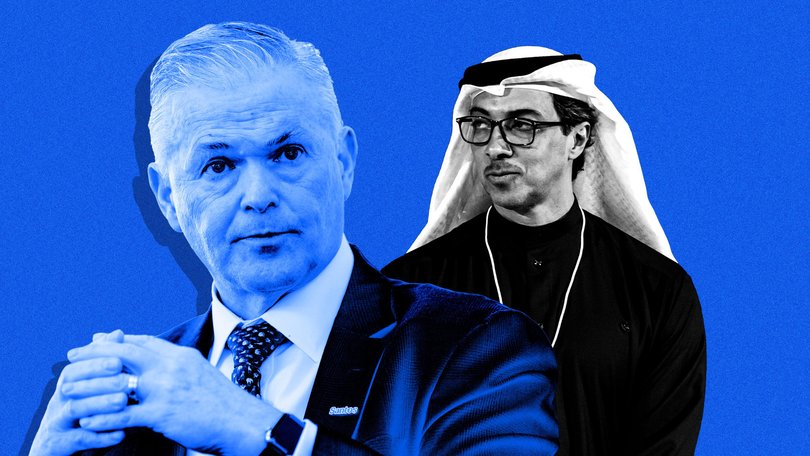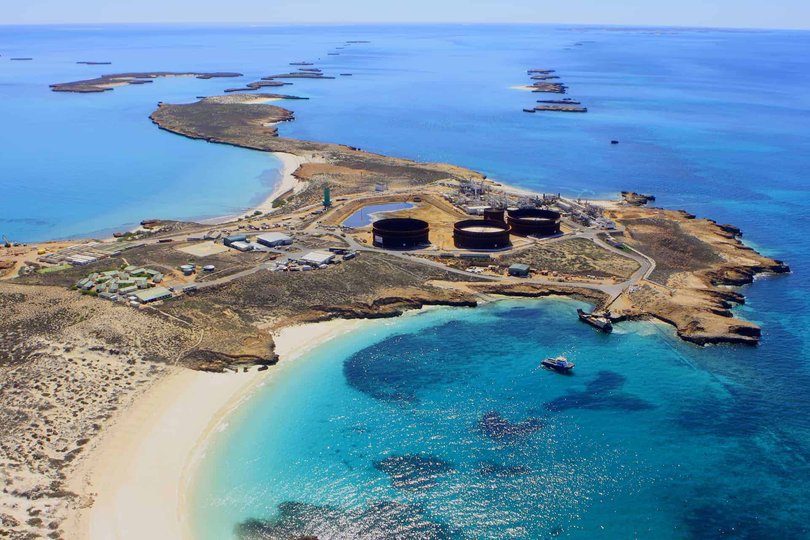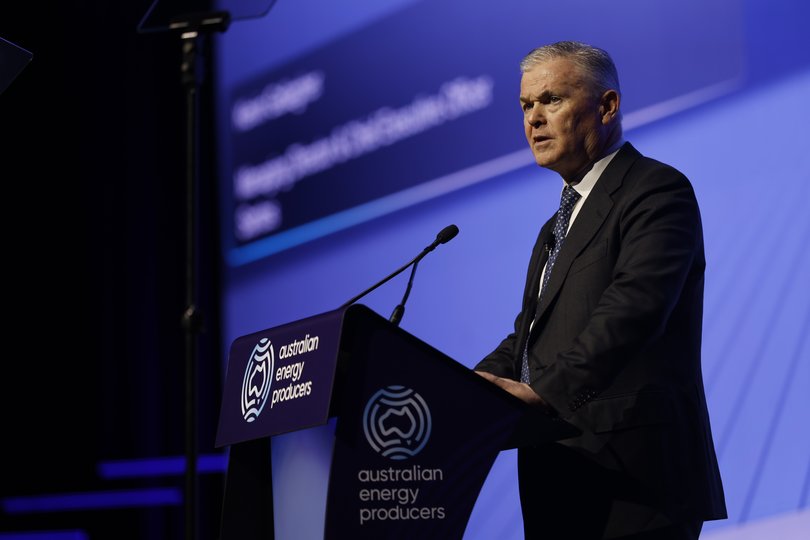AARON PATRICK: Santos has been saved from Abu Dhabi, but can it save itself?
AARON PATRICK: The loss of the gas giant would have been a blow to Australia’s energy sovereignty, but the collapse of a $36b takeover bid for Santos is a threat to the chairman and CEO.

Australians no longer have to worry their second-largest energy producer will be sold to Abu Dhabi.
Late Wednesday a consortium led by the Abu Dhabi National Oil Company pulled a $36 billion bid for Adelaide-based Santos.
The offer’s failure after three months is terrible for Santos shareholders. The company’s shares fell 12 per cent to $6.73 after the share market opened Thursday morning, a reminder of the stock’s decades-long path to nowhere. For the third time in seven years, investors have lost an opportunity to cash in for a bumper price.
Sign up to The Nightly's newsletters.
Get the first look at the digital newspaper, curated daily stories and breaking headlines delivered to your inbox.
By continuing you agree to our Terms and Privacy Policy.Australia, though, has avoided losing control of a vital national asset to owners whose long-term intentions were unclear.
The owner of gas fields and processing plants from Karratha to Alaska, Santos provides energy that makes manufacturing possible, keeps homes warm and stoves operating.

The sheikh
The deal would have given control over this essential service to a Gulf sheikh, Mansour bin Zayed Al Nahyan, and his American private equity partner, Carlyle Group. Sheikh Mansour, the billionaire owner of Manchester City, is a senior director of the Abu Dhabi National Oil Company and the royal family member who controls most of the city state’s economic investments.
Carlyle Group has a history of buying businesses using debt, stripping assets and selling out at a big profit.
With wholesale gas prices in Queensland, NSW and Victoria already up threefold since 2016, the risks were high.
Some business leaders were worried the sale could drive prices up more if the new owners prioritised foreign customers. With Australia accelerating the elimination of carbon dioxide emissions, which will drive coal power stations shut, gas is going to be even more important.
Concerns were also quietly raised about Sheikh Mansour, a United Arab Emirates deputy prime minister and younger brother of the president, Mohamed bin Zayed Al Nahyan.
US intelligence intercepts found evidence Sheikh Mansour helped fuel a civil war in Sudan through aiding a warlord who seized power in a coup, built a fortune on illicit gold and was accused of widespread atrocities, the New York Times reported three months ago.
While building up the Emirates’ influence across the region, Sheikh Mansour has kept a low profile in the West. He seems to have never given an interview to a Western media outlet or been seen at a Manchester City game.
Walked away
Exactly why the bid was pulled is not entirely clear. Reports emerged in recent weeks of haggling over details, including responsibility for a tax bill due next year and repair work that may be necessary to plug leaks at a Darwin liquefied natural gas plant.
But the primary reason, investors fear, is the Arabs looked closely at the business and were worried by what they found.
The company pushed back against that perception on Thursday morning with a press release that promised better financial results soon. “Our strategy is clear: generate cash, reward shareholders, reinvest to backfill and sustain our infrastructure, and build and grow our production, while continuing to operate safely and reliably,” Chairman Keith Spence said.
The shares are now trading 40 per cent below the offer price, suggesting investors are not convinced. Last year they suffered a similar hit when competitor Woodside Energy withdrew a merger offer that could have created an $80 billion national champion.
Break up?
One way of delivering better financial returns for investors might be to break up the company. It operates two main businesses: sucking gas out of the ground and from under the sea floor, and liquifying it for sale overseas.
Some analysts calculate the operations could be worth more as separate businesses or assets of other companies. But big businesses are usually reluctant to become medium sized. A downgrade usually reduces the directors’ and senior managers’ pay and status.
Only big shareholders can pressure Mr Spence and Chief Executive Kevin Gallagher to take such a drastic step, which could be good for investors and Australia. If they don’t find a way to turn the company around, both men may lose their jobs, according to stockbroking analyst Saul Kavonic, who said Santos executives told people “a few days ago” the takeover was going ahead.
“Spence and Gallagher’s tenure may become untenable, in our view,” Mr Kavonic told investors Thursday. “After seeing two bidders walk away during DD (due diligence) in as many years, amidst an otherwise disappointing share price, the board should take accountability, and a leadership change may be required for STO (Santos) to move forward positively.”
Santos presents itself as a paragon of corporate virtue. Its annual report includes a 40-page “sustainability” report and 53 pages on its environmental record. An elaborate corporate governance system is designed “to make good decisions that promote the longer-term success of Santos”.
With the shares at similar prices to 20 years ago, it would seem the Santos system is broken.


